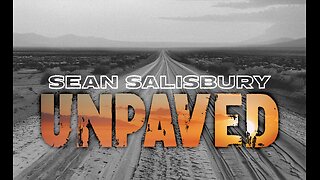Premium Only Content

Tips to Improve your Mental Health
There are many different things you can do to improve your mental health, including:
Staying positive. It's important to try to have a positive outlook; some ways to do that include
Finding balance between positive and negative emotions. Staying positive doesn't mean that you never feel negative emotions, such as sadness or anger. You need to feel them so that you can move through difficult situations. They can help you to respond to a problem. But you don't want those emotions to take over. For example, it's not helpful to keep thinking about bad things that happened in the past or worry too much about the future.
Trying to hold on to the positive emotions when you have them
Taking a break from negative information. Know when to stop watching or reading the news. Use social media to reach out for support and feel connected to others but be careful. Don't fall for rumors, get into arguments, or negatively compare your life to others.
Practicing gratitude, which means being thankful for the good things in your life. It's helpful to do this every day, either by thinking about what you are grateful for or writing it down in a journal. These can be big things, such as the support you have from loved ones, or little things, such as enjoying a nice meal. It's important to allow yourself a moment to enjoy that you had the positive experience. Practicing gratitude can help you to see your life differently. For example, when you are stressed, you may not notice that there are also moments when you have some positive emotions. Gratitude can help you to recognize them.
Taking care of your physical health, since your physical and mental health are connected. Some ways to take care of your physical health include
Being physically active. Exercise can reduce feelings of stress and depression and improve your mood.
Getting enough sleep. Sleep affects your mood. If you don't get a good sleep, you may become more easily annoyed and angry. Over the long term, a lack of quality sleep can make you more likely to become depressed. So it's important to make sure that you have a regular sleep schedule and get enough quality sleep every night.
Healthy eating. Good nutrition will help you feel better physically but could also improve your mood and decrease anxiety and stress. Also, not having enough of certain nutrients may contribute to some mental illnesses. For example, there may be a link between low levels of vitamin B12 and depression. Eating a well-balanced diet can help you to get enough of the nutrients you need.
Connecting with others. Humans are social creatures, and it's important to have strong, healthy relationships with others. Having good social support may help protect you against the harms of stress. It is also good to have different types of connections. Besides connecting with family and friends, you could find ways to get involved with your community or neighborhood. For example, you could volunteer for a local organization or join a group that is focused on a hobby you enjoy.
Developing a sense of meaning and purpose in life. This could be through your job, volunteering, learning new skills, or exploring your spirituality.
Developing coping skills, which are methods you use to deal with stressful situations. They may help you face a problem, take action, be flexible, and not easily give up in solving it.
Meditation, which is a mind and body practice where you learn to focus your attention and awareness. There are many types, including mindfulness meditation and transcendental meditation. Meditation usually involves
A quiet location with as few distractions as possible
A specific, comfortable posture. This could be sitting, lying down, walking, or another position.
A focus of attention, such as a specially chosen word or set of words, an object, or your breathing
An open attitude, where you try to let distractions come and go naturally without judging them
Relaxation techniques are practices you do to produce your body's natural relaxation response. This slows down your breathing, lowers your blood pressure, and reduces muscle tension and stress. Types of relaxation techniques include
Progressive relaxation, where you tighten and relax different muscle groups, sometimes while using mental imagery or breathing exercises
Guided imagery, where you learn to focus on positive images in your mind, to help you feel more relaxed and focused
Biofeedback, where you use electronic devices to learn to control certain body functions, such as breathing, heart rate, and muscle tension
Self-hypnosis, where the goal is to get yourself into a relaxed, trance-like state when you hear a certain suggestion or see a specific cue
Deep breathing exercises, which involve focusing on taking slow, deep, even breaths
-
 47:50
47:50
Candace Show Podcast
5 hours agoBREAKING: Judge Makes Statement Regarding Taylor Swift's Text Messages. | Candace Ep 155
94.3K102 -
 DVR
DVR
Josh Pate's College Football Show
2 hours agoCFB’s Most Hated Teams | FSU & Clemson Future | Big Ten Win Totals | Star Rankings Overrated?
5.76K -
 1:33:47
1:33:47
CatfishedOnline
4 hours agoGoing Live With Robert - Weekly Recap
19.4K -
 55:18
55:18
LFA TV
1 day agoEurope’s Sudden Turn Against America | TRUMPET DAILY 3.6.25 7PM
25.5K3 -
 4:21
4:21
Tundra Tactical
3 hours ago $1.38 earnedPam Bondi MUST Enforce Due Process NOW!
18.4K1 -
 56:42
56:42
VSiNLive
5 hours agoFollow the Money with Mitch Moss & Pauly Howard | Hour 1
43.6K1 -
 1:05:32
1:05:32
In The Litter Box w/ Jewels & Catturd
1 day agoShalom Hamas | In the Litter Box w/ Jewels & Catturd – Ep. 756 – 3/6/2025
98.7K37 -
 1:23:00
1:23:00
Sean Unpaved
6 hours ago $2.98 earnedNFL Free Agency
50.9K3 -
 18:25
18:25
Stephen Gardner
5 hours ago🔥The REAL REASON the Epstein Files are being HIDDEN | I CONFRONT Alan Dershowitz for details!
63.3K109 -
 1:58:44
1:58:44
The Quartering
9 hours agoTrump To Charge USAID Staff, Campus RIOT Erupts, Theo Von & Candace Owens, Ukraine Gets Worse!
114K72